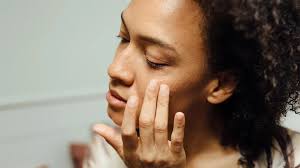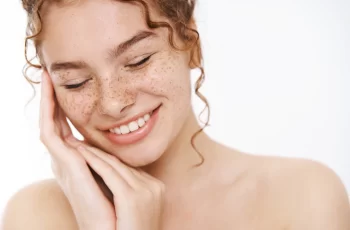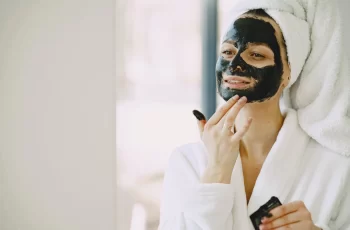Is Retinol and Retinoid the Same?
Retinoids carry with them a lot of scientific backing clinically proven to treat frequent breakouts and minimising the appearance of ageing, such as fine lines and wrinkles. They also carry a touch of mystery as although they are one of the most popular skincare ingredients, there is still a lot of misconception about this potent powerhouses. Many find it too complicated to include in their skincare routine, others just don’t know where to begin. This is totally understandable, especially due to the fact that names retinol and retinoid are thrown around as though they are interchangeable when in fact, they are quite different. So, with that in mind, let’s find out more about them and how they actually differ.
What’s the difference between retinol and retinoid?
There are some differences between retinol and retinoids, the main one being the molecular size of these ingredients. For example, the most potent concentrate is prescriptive retinoids that are very potent and must only be used if given the all-clear by a doctor, dermatologist or trained professional. These formulas cannot be found over the counter which is exactly where retinols come into play.
Retinol is a form of retinoids and you will often find them in a variety of products that are readily available in stores and online. Although they are derived from retinoids the formulas for OTC products contain other ingredients designed to reduce their potency making them easier to add to a routine by allowing your skin to build its tolerance without severe side effects, such as redness, rashes, skin irritation and other reactions that retinoids often cause. Bear in mind however that depending on the formula, some of the listed side effects can still occur so using the product correctly is vital.
What is retinoid?
Retinoids are a form of vitamin A that are often found in all varieties of skincare products, sometimes found in over the counter but more than often formulated into prescription products. Highly potent and contain a variety of skincare benefits from combating signs of acne and problematic skin, it is able to do this by exfoliating the outer layer of the skin ridding it of excess sebum and build-up of dead skin cells that over time result in active spots and other blemishes, such as blackheads.
Although it has gained its reputation as being the most effective ingredient to clear the skin of breakouts it is also widely praised for its ability to reduce the appearance of ageing, such as fine lines, wrinkles and expression lines. It is able to promote the production of collagen resulting the surface of the skin to appear smoother and plumped.
When it comes to retinoids you can expect to find the most powerful formulas are available through prescription only, however there are many forms of retinol found in over the counter blends that come in an array of strengths and price tags.
What is retinol?
Retinols are in fact a type of retinoid found in non-prescriptive products, but instead available easily online or in selective stores. You can expect to find retinol to provide the same skin benefits of retinoids when introducing this into your skincare routine. What you may find is retinols are generally a lower concentrate compared to the levels of active ingredient found in retinoids. This also means that the products found OTC (over the counter) are usually easier to introduce into your daily regime just as long as they are used correctly. If you needed help clearing things up a little and figure out how you can introduce retinol you can check out the dedicated blog post all about the skincare benefits of retinol and why they are so good for the skin.
By having a lower concentrate of retinoid in the formulas you will find OTC will work more gradually on the skin, one thing to remember is the different names types of retinols are listed under such as, retinyl palmitate, retinyl linoleate, retinaldehyde, retinyl acetate and propionic acid. You can find all of these listed in the ingredients list of the product packaging and depending on when they are listed will show how potent the concentrate is, ideally you would like the retinol to appear in the top 5 remembering that for products that aren’t prescribed are often blended with other ingredients such as hyaluronic acid to create balance and help the formula to be easier and less potent to apply to the skin.
Is retinoid better than retinol?
Both retinoid and retinol perform similar skin benefits and can improve your skin but come in different levels of concentrates. This simply results in you having the option of finding the best product for you to use for your skin and in your daily routine. If you are wanting to get right to the bottom of this and focus on the ingredients alone, then yes, retinoid is better than retinol. But considering you can only find retinoids through prescription you will find that retinol provides the same results but is a lot gentler and can take a couple of months to start showing the full skin results.
Is retinol weaker than retinoid?
The best way of thinking about retinoid and retinol is the fact they are not identical sisters, but in fact cousins. Related, but not exactly the same. If you find yourself suffering from severe acne and breakouts resulting with you having to consult with a GP or dermatologist, chances are you will be prescribed with a retinoid. Due to the fact they are medical grade standard the potency of the concentrates is higher and at a level you won’t be able to find over the counter which technically means retinol is weaker. This, however, doesn’t result in the products you can find containing retinol are not effective but are considered a lot easier to include into your routine without the worry of the formula being too harsh on the skin. Having said that retinol is still one of the most potent ingredients available in the industry and needs to be applied to the skin slowly. I would first suggest using it once a week in the evenings to begin with, this will build the skin’s tolerance and will hopefully avoid skin irritation or flare-ups.
Hopefully now you have a little more understanding of the admittedly tricky but popular skin ingredients, in all honesty it doesn’t matter if it’s a retinoid or retinol you’re using, so long as you are using one, after all, your skin will never look so good! If you have any further questions about retinol (or retinoid) you can private message me over on our Instagram.
DQH Knowledge drop: In your 20s, your skin cell turnover decreases. (Cell turnover is a key component in keeping your skin youthful.) You know what else slows down? Your collagen production. Starting in your 20s, collagen decreases by about 1 percent per year. Should you want to prevent fine lines and wrinkles, start by eliminating behaviors that contribute to premature aging. “If it’s bad for you, it’s bad for your skin,” says dermatologist Michel Somenek.
“Cigarette smoking reduces blood flow to the skin and causes premature wrinkling and a dull skin texture. Making the repeated pursed motion to inhale can also cause smoker’s lines. Alcohol and recreational drugs are toxins for the skin that damage its cellular structure and DNA,” Somenek tells us. “The faster you eliminate vices while you are young, the better chance your skin and body have to recuperate.” Also, adopting an anti-aging routine in your 20s is key. After all, the best offense is a good defense. We spoke to Somenek and experts Joshua Ross and Audrey Kunin to find out more.
Keep reading for the best anti-aging products for your 20s, according to skincare professionals.
Sunscreen
“We all know that the sun is the number one cause of skin aging and starting the prevention in your 20s is very important,” Ross says. “The majority of your sun damage won’t start to appear until you’re in your 30s, so don’t wait until you see it surface or you’ll be behind the curve. Stay ahead of it with a good-quality zinc-based sunscreen worn daily.”
Farmacy Green Defense Daily Mineral Sunscreen
An invisible sunscreen with SPF 30, plus botanical extracts meant to protect skin with tons of antioxidants. Bonus: It’s clean and fine to use under makeup.
Bareminerals Complexion Rescue™ Tinted Moisturizer Broad Spectrum SPF 30
Although we recommend you use your SPF and moisturizer separately, we also understand moments when you don’t have time or energy for that extra step. For those times, this bareMinerals moisturizer is a great thing to have on hand.
Vitamin C Serum
“A great introduction to anti-aging is to start with a vitamin C serum in your morning skincare routine,” Ross says. “It’s a powerful antioxidant that will neutralize free radicals and brighten the skin.” He adds that it’s a great way to counteract the effects of the sun’s harmful rays, which, as previously mentioned, are among the biggest causes of premature aging.
Drunk Elephant C-Firma™ Vitamin C Day Serum
The Drunk Elephant C-Firma is a lightweight serum that promises to give skin a glow by combining the brightening powers of vitamin C with ferulic acid, l-ascorbic acid, and vitamin E. The included sodium hyaluronate is meant to replace hydration loss, so you shouldn’t have to deal with any irritation.
Sunday Riley C.E.O. Rapid Flash Brightening Serum
This potent serum is jam-packed with vitamin C (15 percent, to be exact), which means it’s a potential superstar at both brightening skin and dousing it in antioxidants.
Peptides
Using peptides on your skin has many benefits, says Somenek. “The skin barrier is what defends the body against pollution, UV rays, bacteria, and toxins. It can be damaged by several everyday factors. Using topical peptides aids in building a stronger barrier,” he says. “Peptides comprise elastic fibers, which are a type of protein. These fibers help to make skin appear taut and firm. Peptides can also help repair damaged skin, relieve inflammation, and even out skin tone. Some peptides can kill acne-causing bacteria that is common in 20-somethings.”
Kunin agrees, saying, “Peptides are an excellent entry point for supporting collagen.” She recommends looking for face and eye treatments that contain these collagen-boosting powerhouses.
Charlotte Tilbury Magic Eye Rescue Cream
This Charlotte Tilbury super-emollient eye cream has a base of coconut oil and shea butter (read: it’s incredibly hydrating). Botanicals plus peptides are meant to help reduce dark circles and boost collagen, respectively.
This creamy moisturizer serves up potent collagen-boosting peptides and pycnogenol, and antioxidant-rich vitamin C. “Instead of sitting on top of the skin, peptides penetrate the outer layer so they go deep. The ‘signals’ they send tell the cells to produce elastin and collagen, which are needed for youthful-looking skin,” explains Somenek.
At-Home Peel Pads
Remember that skin cell turnover fiasco we talked about earlier? One way to help support it is by exfoliating. “Exfoliation is important to help keep skin fresh and luminous,” Kunin says. She recommends using at-home peel pads as an easy and effective way to exfoliate.
“The goal in your 20s is to fight the slowing pace of cell turnover. It is wise to use products that gently exfoliate, yet still remove oil and other impurities. Products that have Alpha Hydroxy Acids (AHA) or Beta Hydroxy Acids (BHA) are a good choice.”
According to Somenek, you should only exfoliate two to three times a week. “People of all ages are guilty of over-exfoliating and that can be too much of a good thing,” he says.
Dermadoctor Kakadu C Intensive Vitamin C Peel Pad
A few swipes of this Derma Doctor powerful peel pad promise to leave your skin glowing and smooth, thanks to the seven (yes, seven) types of chemical exfoliants, including AHA and BHA. It also contains vitamin C via Kakadu plum extract for added brightening and antioxidant protection.
KEY INGREDIENTS Kakadu plum extract is sourced from the Kakadu plum, a fruit grown in northern Australia. It contains vitamin C, which restores the skin’s natural barrier, increases collagen production, and soothes irritation.
Dr. Dennis Gross Skincare Alpha Beta® Universal Daily Peel Pads
These are the gold standard of peel pads, with a cult following and over 900 five-star reviews on Sephora. They’re easy to use and contain a blend of anti-aging exfoliating acids.
Emollient Night Cream
“In your 20s, you need to start upping the hydration in your skincare routine. You may have been cautious of over-moisturizing because of acne in your teens, but as you enter your 20s, your skin transitions and becomes drier,” Ross says. “I recommend an emollient night cream added into your evening skincare regimen.”
“Twenty-somethings need to make sure that they are not using creams that will clog their pores and cause excess oil production,” says Somenek. Opt for non-comedogenic products.
Cerave Skin Renewing Night Cream
One great choice is the CeraVe Skin Renewing Night Cream, which is a non-comedogenic night cream that leaves skin soft and glowy. It combines the moisturizing powers of ceramides and hyaluronic acid.
RoC Retinol Correxion Max Hydration Creme
“The best night cream ingredients contain retinol, benzoyl peroxide, and/or salicylic acid or hyaluronic acid. The goal is to moisturize, yet remove excess oil,” says Somenek. This Roc Retinol Correxion cream fits the bill as it contains both hyaluronic acid and retinol so it promises to moisturize while also being non-comedogenic.



